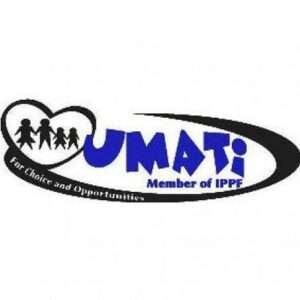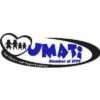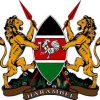Request For Proposals at UMATI
Job Overview

Request For Proposals at UMATI
MID-TERM EVALUATION -REQUEST FOR PROPOSALS
Project Title: Scaling up Access to Integrated SRH Services in public health facilities through Outreach Approaches in Kigoma – UMKOBA Project Phase III.
Project Period: Three Years (2023-2026).
Funding Agency: Bergstrom Foundation
Implementing Institution: UMATI
Feb 2025
INTRODUCTION
Chama cha Uzazi na Malezi Bora Tanzania (UMATI) is an autonomous, non-political national NGO providing Sexual and Reproductive Health and Rights (SRHR) information, education, and services in Tanzania. It has been in operation since 1959 and became a leading national organization providing quality youth-friendly SRH information and services, particularly to young people and women. In 1965 UMATI became a member association of the International Planned Parenthood Federation (IPPF) where technical and core funds support was provided. By being a member of IPPF, UMATI is internationally connected through experience sharing with other IPPF member associations.
UMATI envisions a Tanzania where people are free to choose and exercise their Sexual and Reproductive Health and Rights without discrimination in gender, sex, and age. The visioning process of UMATI highlighted the need to integrate “without discrimination” as a recurring theme as well as an organizational value statement. “Freedom of choice” was agreed as a paramount inclusion at the end that UMATI would love to see by doing its core business.
UMATI’s Mission Statement is to champion SRHR and provide information and services targeting the young and underserved. In coming up with the Mission Statement, cognizance was put on the strategic position of UMATI as a leading SRHR service provider in Tanzania. This was eventually replaced by “champion” recognizing the need to lead not only by the provision of services but also by enabling other service providers including capacity building to local CSO partners in the country to champion SRHR through their advocacy initiatives. UMATI strives for structural poverty reduction by improving the health of people in the country regardless of gender and political or religious beliefs, with priorities being given to the poorest communities and hard-to-reach populations.
ABOUT THE PROJECT
The UMKOBA project has been implemented in the Kigoma region through three phases: Phase I (2018-2021), Phase II (2022-2023), and Phase III (2023-2026). With the generous support of the Bergstrom Foundation, we are executing a transformative Phase III, a three-year project aimed at increasing access to integrated Sexual and Reproductive Health (SRH) services in rural Kigoma, focusing on the most underserved and hard-to-reach populations.
This project directly contributes to the realization of Sustainable Development Goals (SDGs) 3 and 5 by ensuring that women, men, and young people in Kibondo, Kakonko, Kasulu District, Kasulu Town, and Uvinza District gain vital access to quality SRH services. Through the implementation of Phase III, the project targets women of reproductive age (15-49), youth aged (10-24), and men living in hard-to-reach areas within six project districts: Kasulu Town Council, Kasulu District Council, Kibondo District Council, Kakonko District Council, and Uvinza District Council.
The project focuses on women due to the increasing number of maternal deaths and unwanted pregnancies resulting from low contraceptive uptake. Young people experience high rates of HIV, sexually transmitted infections (STIs), unplanned pregnancies, and maternal morbidity and mortality. For men, who are often family supporters and users of these services, it is essential to be aware of family planning services and their importance. Engaging all these groups in family planning interventions increases the uptake of services, leading to a decrease in maternal deaths and unwanted pregnancies among young girls and women.
To create demand, the project employs various approaches, including community mobilization, awareness campaigns through radio programs, and the involvement of male champions to encourage their partners to access family planning services. The project utilizes a cluster model, forming nine clusters among the 40 health facilities within the project area. On average, each cluster has a comprehensive facility as a referral point, surrounded by a maximum of five feeder facilities. This cluster model not only enhances access to a broader method mix for family planning services but also strengthens the overall health system, contributing to sustainability when properly implemented. However, gaps have been identified in monitoring cluster performance.
Due to the geographical layout of Kigoma, some clusters contain two comprehensive facilities while others have fewer than five feeder facilities. Furthermore, as the project aims to reach the youth, UMATI employs youth-friendly approaches, such as youth weekend clinics, adopted in 11 of the 40 project facilities. This is complemented by youth bonanzas and mobilization facilitated by youth peer educators.
During project implementation, capacity-building activities for service providers, community health workers, and peer educators have been performed through various training sessions. Comprehensive family planning training was provided to 40 healthcare providers, and 11 surgeons were trained in the provision of permanent methods, including Minilaparotomy and no-scalpel vasectomy. The project supports 22 youth peer educators and 80 community health workers engaged in mobilizing communities, providing SRH information and education, and referring clients who need our services to health facilities.
We provide SRH/family planning services through youth weekend clinics, health facility-based outreach, and mobile van outreach, bringing services closer to the community, particularly in hard-to-reach areas. Demand creation is supported closely by the Local Government Authority, community health workers, and peer educators to ensure effective mobilization of clients for these services.
GEOGRAPHIC COVERAGE
The UMKOBA project is being implemented in the Kigoma Region for Phase III of the program, primarily targeting hard-to-reach areas across five councils: Kasulu Town Council, Kasulu District Council, Kibondo District Council, Kakonko District Council, and Uvinza District Council. The project covers a total of 40 health facilities, including 4 hospitals, 9 comprehensive health facilities (health centers), and 27 dispensaries.
Project Goal
- To contribute towards improved sexual and reproductive health (SRH) outcomes of women, men, adolescents, and youth in Kigoma by 2026.
Project Objectives
- To increase access to integrated SRH services, particularly LAPM to 84,754 Women of reproductive age, 25,426 young people aged 10-24, and 15 Men with the permanent method in the Kigoma Region by 2026.
- To increase access to comprehensive SRHR information to 143,234 women of reproductive age, men, and youth in Kigoma Region by 2026.
EXPECTED RESULTS
By 2026, the project will have the following expected results; –
- 21,600 youth reached through increased awareness of integrated SRHR information and services for women of reproductive age, men, and girls in the project target areas through youth weekend clinic
- 171,583 Family planning services provided and generating a total of 288,905 CYP
- 103,208 SRH/FP services delivered through CHW referrals and generating a total of 175,930.42 CYP
- 68,374 SRH/FP services provided through mobile units and generating a total of 112,974 CYP
TERMS OF REFERENCE
UMATI has planned to conduct an independent mid-term evaluation of the project to provide evidence of the progress made. The evaluation will be carried out midway through the implementation of Phase III, targeting a sample of community members benefiting from the project, including men, women of reproductive age (18-45 years), and youth aged 10-24. The findings will provide evidence of the progress of the project’s interventions.
OBJECTIVES OF THE EVALUATION
The broad objective of this evaluation is to measure the extent UMKOBA project has achieved the intended outcomes for the period of one year and a half.
Based on the mid-term data gathered, the following questions will be considered for this evaluation:
- What progress did the project make against the outcome/impact indicators? Provide an analysis against the baseline data/national statistics for the catchment population i.e. age of users, methods mix, the unmet need, and CPR to evaluate the project effectiveness.
- What were the pre-and post-intervention knowledge and skills of individuals benefiting from the service? Were individuals trained to utilize skills gained? What was the reported or observed change in the status of beneficiaries (individuals or households)?
- Did the intervention facilitate the strengthening of linkages between Community Volunteers (CHWs and PE), health facilities, and mobile units? If so, how effective was the intervention, and what impact did the strengthening of the linkages make to the community and the service providers?
- Are the benefits of the project intervention sustainable through the following components applied during the implementation of the project:
- Cluster Model
- Capacity building to service providers on the provision of Family Planning services
- The effective use of community Volunteers (CHWs and Pes) for awareness creation and Integration of SRH services;
- The use of mobile van services in reaching hard to reach the population
- Youth weekend clinic.
- How has the project facilitated potential replication and scale-up of the identified good lessons learned in phase II? i.e. the use of available service statistics (data)for decision-making in the project catchment areas.
The suggested methodology should include a study of the direct beneficiaries to determine the project’s impact on their lives, in-depth interviews with key stakeholders, and a document review. Data will be collected by administering questionnaires to community members and conducting focus group discussions aimed at determining changes in their knowledge, behavior, and practices following project implementation.
THE CONSULTANCY
For the midterm evaluation, UMATI in collaboration with the identified consultant will work closely to develop evaluation tools and further sharpen the methodology before the implementation of the work.
SCOPE OF WORK
The following is a general scope of work for the evaluation.
- To prepare and present the evaluation protocol
- To prepare and present developed evaluation tools
- To work with UMATI staff to finalize an appropriate evaluation design
- To carry out a desk review of existing data/information related to the project available at the project site and UMATI HQ.
- To translate developed evaluation tools into commonly spoken language in the local areas and translate them back into English.
- To work with UMATI in the recruitment and training of enumerators.
- To coordinate logistics of collection of necessary data, supervision of evaluation team (Data Collectors), quality control of data, cleaning, analysis and interpretation of the findings.
- To analyze and evaluate the outcomes, impact, and effectiveness of the project interventions.
- To analyze and evaluate the sustainability potentials of the project intervention/impact and provide recommendations as appropriate.
- To highlight lessons learned and formulate recommendations with a focus on assessing how individual elements of success could be replicated or scaled up for subsequent projects.
- To develop the final mid-term evaluation report
REQUIREMENTS
UMATI is looking for a consultant with the following set of skills, knowledge, and experience:
- A strong evaluation background with a proven record of successfully conducting assignments of a similar nature.
- An advanced university degree in research, population studies, community health, or a similar specialty is desirable.
- A good understanding of the local socio-economic context, particularly of issues relating to Kigoma region.
- Solid knowledge of SRH

Request For Proposals at UMATI
SUBMISSION
The applicant will submit an electronic Expression of Interest (EOI) stating his/her capability to conduct the evaluation; including a budget showing details of all activities (e.g. # of days per person and description of the person’s job; the cost of tools, etc); proposed work plan with timelines; curriculum vitae and description of similar project assignments undertaken. Please note that both Technical and financial processes need to be in a single document. The expressions of interest must be submitted to the Executive Director by 14th February 2025 at [email protected]





